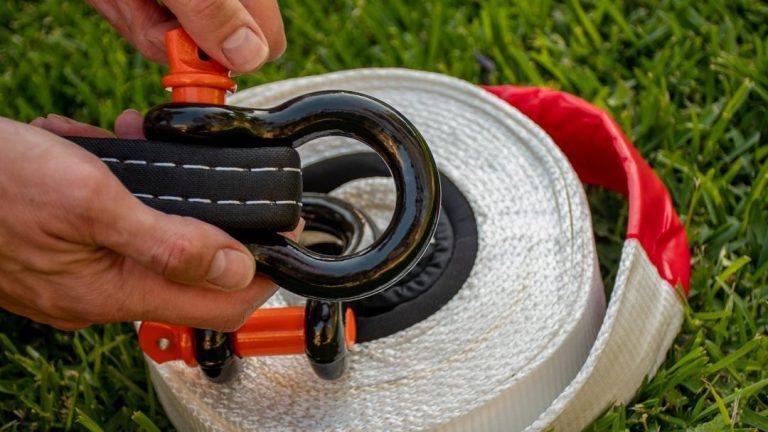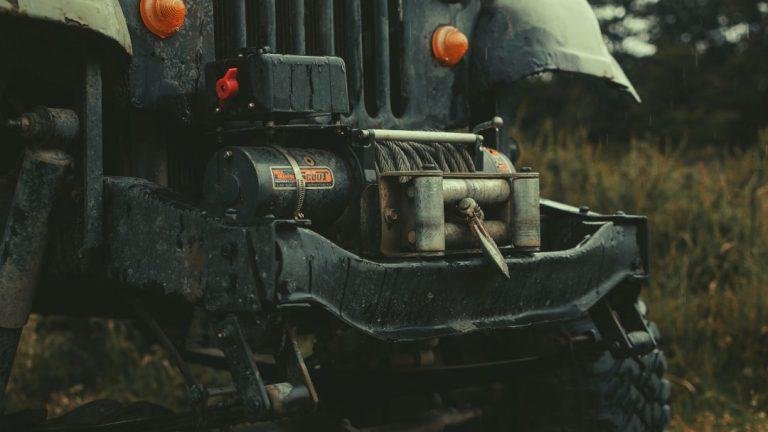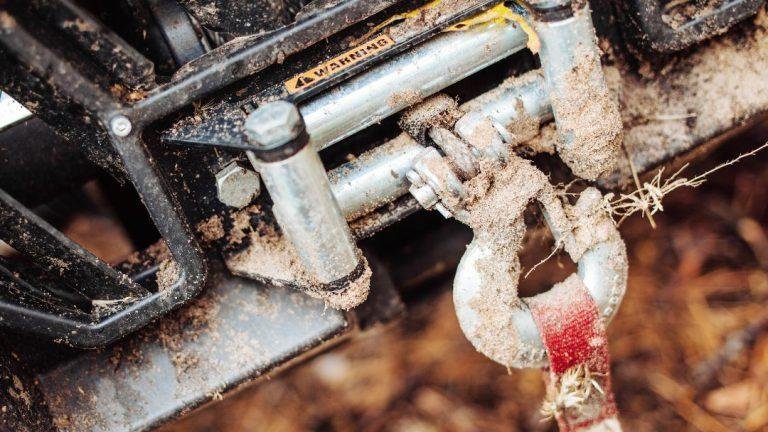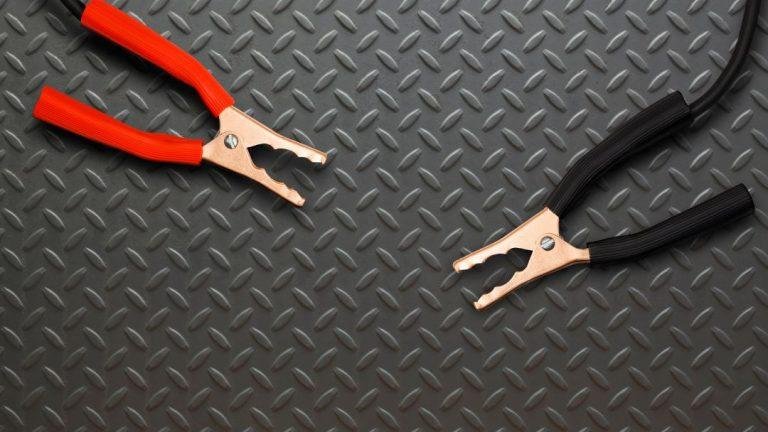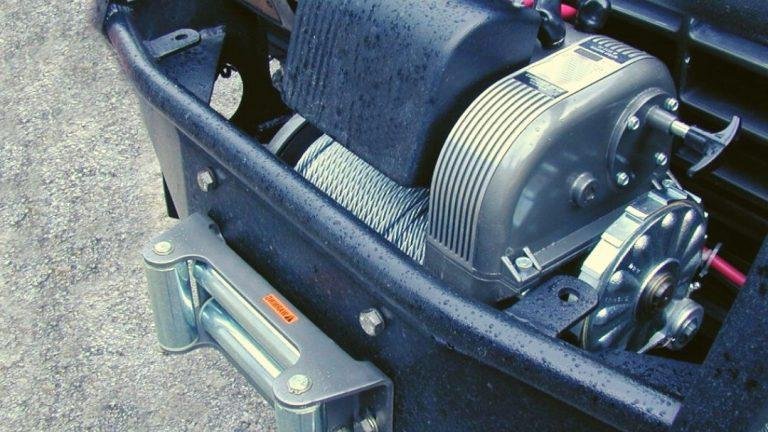When choosing an atv winch, there are two main options to consider: steel or synthetic rope. Each has its advantages and disadvantages, so it is crucial to weigh them carefully.
Steel winch ropes are extremely durable and have high tensile strength, making them ideal for heavy-duty applications. On the other hand, synthetic winch ropes are lightweight, easier to handle, and safer in case of rope failure. Additionally, they are less susceptible to rust and corrosion.
Ultimately, the choice between steel and synthetic winch ropes depends on your specific needs and preferences. When selecting an atv winch, one important decision to make is whether to opt for a steel or synthetic rope. Understanding the differences between the two is essential to ensure you choose the most suitable option for your requirements. Steel winch ropes are known for their exceptional durability and ability to withstand heavy-duty tasks. Their high tensile strength makes them ideal for challenging applications. On the other hand, synthetic winch ropes have gained popularity due to their lightweight nature, easy handling, and superior safety in case of rope failure. Additionally, they offer resistance to rust and corrosion. To determine the best choice between steel and synthetic winch ropes, it is crucial to carefully evaluate your specific needs and preferences.
Understanding The Importance Of Atv Winches
Understanding the importance of atv winches helps in making an informed decision between steel and synthetic options. Both materials have their own advantages and it ultimately depends on the specific needs and preferences of the user.
Atv winches play a key role in enhancing off-road adventures and ensuring the safety and convenience of riders. Whether you’re tackling rough terrains, rescuing stuck vehicles, or hauling heavy loads, having a reliable winch on your atv can be a game-changer.
So, let’s dive into the key role of winches in atv applications:
Key Role Of Winches In Atv Applications:
- Recovery assistance: Atv winches are designed to help recover vehicles that are stuck or immobilized. They provide the necessary pulling power to get your atv out of challenging situations, whether it’s deep mud, steep inclines, or rough terrains.
- Versatility: Winches can be used for a wide range of tasks beyond vehicle recovery. They allow you to haul heavy loads, move obstacles, and even assist in trail clearing, making them an invaluable tool for atv enthusiasts who frequently embark on adventurous journeys.
- Safety: When venturing into remote areas, unexpected situations can arise. Atv winches act as a safety net, providing a means to rescue yourself or others in case of emergencies. They enable you to extricate your vehicle from hazardous conditions, ensuring your well-being and peace of mind during off-road adventures.
- Convenience: Having a winch on your atv eliminates the need to rely on external help or equipment when you encounter difficulties. It gives you the independence to venture into more challenging terrains, knowing that you have the means to recover and overcome obstacles without assistance.
- Performance boost: The presence of a winch can significantly enhance the capabilities of your atv. It allows you to explore remote and less-accessible areas, expand your off-roading adventures, and push the limits of your machine. With a winch, you can take on bigger challenges, knowing you have the power to conquer them.
- Cost-effective solution: Investing in a winch can save you money in the long run. Instead of relying on expensive towing services or heavy machinery, a winch provides an affordable and efficient solution to recover your atv or assist others, reducing the financial burden of potential emergencies.
Atv winches are an essential tool for off-road enthusiasts, bringing both practicality and peace of mind to their adventures. Whether it’s overcoming tough terrains, hauling loads, or assisting others, having a reliable winch on your atv ensures that you can face any challenge with confidence.
So, make sure to equip your atv with a winch that suits your needs and elevate your off-road experiences to new heights.
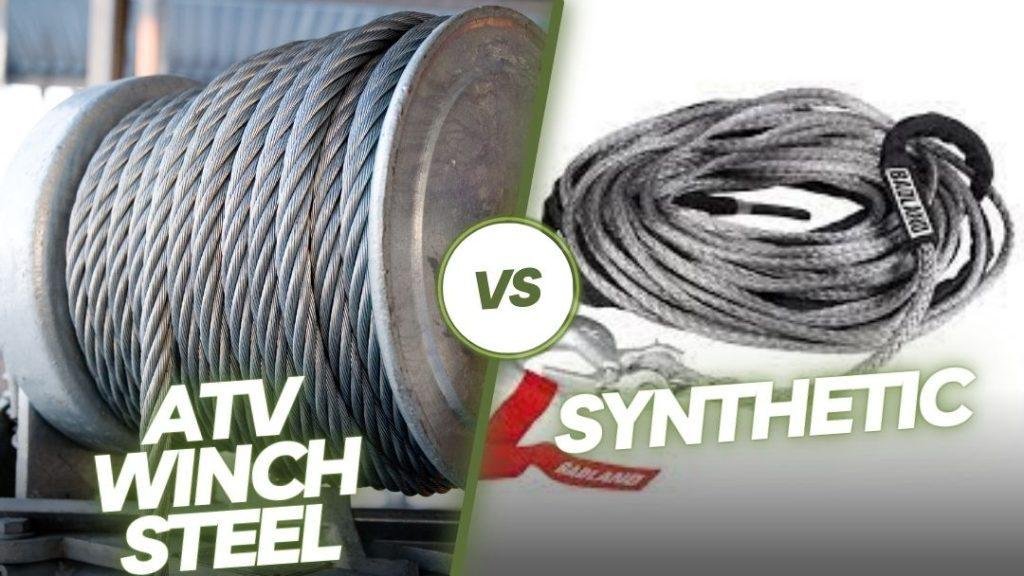
Comparing Steel And Synthetic Winch Cables
Comparing the durability and performance, the choice between steel and synthetic winch cables for atv winches depends on specific needs. Steel cables deliver superior strength and are ideal for heavy-duty tasks, while synthetic cables offer lightweight flexibility and reduced risk of injury during use.
Choose the option that aligns best with your requirements.
Steel and synthetic winch cables are the two primary options available in the market. Both have their own set of advantages and disadvantages. Understanding the differences between them can help you make an informed decision when it comes to selecting the right winch cable for your atv.
Strength And Durability Of Steel Winch Cables:
Steel winch cables are well-known for their exceptional strength and durability. Here are some key points to consider:
- High tensile strength: Steel winch cables are incredibly strong and can handle heavy loads without breaking or stretching excessively.
- Resistant to abrasion: These cables are designed to withstand the harshest conditions, including rough terrains and sharp edges.
- Longevity: Steel winch cables have a longer lifespan compared to synthetic ones, making them a reliable choice for long-term use.
- Suitable for heavy-duty applications: If you often find yourself in situations that require powerful pulling capacity, steel winch cables are the preferable option.
Advantages And Disadvantages Of Synthetic Winch Cables:
Synthetic winch cables, on the other hand, offer their own unique advantages and disadvantages. Let’s take a look at what they bring to the table:
- Lightweight: Synthetic winch cables are significantly lighter than their steel counterparts, making them easier to handle and carry.
- Safer to use: In the event of a cable breakage, synthetic winch cables do not recoil as violently as steel cables, reducing the risk of accidents and injuries.
- Floats in water: The buoyancy of synthetic winch cables allows them to float on water, which can be advantageous in certain situations.
- Flexibility: Synthetic cables are more flexible than steel cables, which can make them easier to wrap around objects during a recovery operation.
- Vulnerable to abrasion: Although synthetic winch cables are resistant to uv rays and harsh weather conditions, they are more prone to abrasion compared to steel cables.
- Lower heat resistance: Synthetic winch cables may not handle high temperatures as well as steel cables, which can be a limiting factor in extreme conditions.
Understanding the strengths and weaknesses of both steel and synthetic winch cables is essential for making an informed decision. Consider the specific needs of your atv and the conditions you often encounter to determine which type of winch cable will suit you best.
The Ultimate Showdown: Steel Vs. Synthetic Winch Cables
Get the lowdown on atv winch cables with this ultimate showdown between steel and synthetic options. Discover the pros and cons of each, helping you make an informed decision for your next off-road adventure.
Breaking Down The Differences In Performance
When it comes to choosing between a steel winch cable and a synthetic winch cable for your atv, there are several key differences in terms of performance. Each option has its own strengths and weaknesses that you should consider before making a decision.
Steel Winch Cables:
- High strength: Steel winch cables are known for their exceptional strength, making them a reliable choice for heavy-duty applications.
- Durability: Steel cables are highly resistant to abrasion and can withstand rough terrain, making them a durable option for off-road adventures.
- Heat resistance: Steel cables can handle high temperatures better than synthetic cables, which makes them suitable for extreme conditions.
Synthetic Winch Cables:
- Lightweight: Synthetic winch cables are significantly lighter than their steel counterparts, allowing for easier handling and reduced strain on your atv’s winch system.
- Flexibility: Synthetic cables are more flexible than steel cables, meaning they are less likely to kink or tangle during use.
- Safety: Synthetic cables are safer to handle as they do not have the same snap-back danger that steel cables possess. They are also less likely to cause damage to your vehicle or surroundings in case of a cable failure.
Considering the pros and cons of each option is crucial to ensure you make an informed decision when it comes to choosing the right winch cable for your atv. Keep in mind factors such as the weight of your vehicle, the type of terrain you’ll be traversing, and the level of strength and durability required for your specific needs.
By understanding the differences in performance, you’ll be able to choose the winch cable that best suits your atv and ensures a safe and efficient off-road experience.
Strength And Durability
Discover the ultimate combination of strength and durability for your atv winch with our steel and synthetic options. Our winches are built to withstand the toughest conditions and provide you with reliable performance when it matters most. Choose the option that best suits your needs and enjoy peace of mind on your next adventure.
Steel Cables: The Unbeatable Strength
Steel cables are renowned for their incredible strength, making them the go-to choice for individuals who prioritize raw power and durability. Here are a few key points to consider when it comes to steel cables as atv winch accessories:
- Exceptional strength: Steel cables are known for their unmatched strength and capacity to handle heavy loads. They can withstand extreme tension and harsh environments without compromising their integrity.
- Reliable performance: Due to their robust construction, steel cables offer excellent reliability, ensuring that you can confidently rely on them during demanding tasks and challenging off-road adventures.
- Longevity: Steel cables have a longer lifespan compared to synthetic options, as they are more resistant to wear and tear. This durability factor makes them a cost-effective choice in the long run.
- Suitable for high-stress situations: If you frequently engage in heavy-duty applications or find yourself in demanding winching scenarios, steel cables are the ideal choice. Their ability to handle high-stress environments makes them perfect for off-roading enthusiasts and professionals alike.
Considerations when using steel cables:
- Heavier and bulkier: Steel cables are typically heavier and bulkier than synthetic ones. While this might not be a significant concern for some, it’s crucial to consider the additional weight when factoring in load capacity and overall vehicle performance.
- Prone to corrosion: Steel cables can be susceptible to rust and corrosion over time, particularly if not properly maintained. Regular inspection and maintenance to prevent rust buildup are essential to maintaining optimal performance and longevity.
- Potential for injury: In rare instances where a steel cable snaps under extreme tension, the recoil can be hazardous and cause injuries. It is crucial to follow safety guidelines and practices when handling steel cables to mitigate these risks.
Synthetic Cables: Pushing The Boundaries
Synthetic cables have been gaining popularity in the atv winch market due to their impressive qualities and innovative engineering. Here’s what you need to know about synthetic cables:
- Lightweight yet durable: Synthetic cables are significantly lighter than steel cables, making them an attractive option for those concerned about vehicle weight and fuel efficiency. Despite their lighter composition, they offer impressive strength and durability.
- Flexible and easy to handle: Synthetic cables are more pliable compared to their steel counterparts, allowing for easier handling and storage. Their flexibility also contributes to enhanced safety as they are less prone to dangerous recoil if they happen to break.
- Corrosion-resistant: Unlike steel cables, synthetic cables are inherently resistant to corrosion. This feature makes them an excellent choice for outdoor enthusiasts who frequently venture into wet, humid, or salty environments.
- Quieter operation: Synthetic cables produce less noise when spooling in and out, contributing to a more enjoyable winching experience without the distracting clanking sound commonly associated with steel cables.
Considerations when using synthetic cables:
- Heat sensitivity: Synthetic cables are more prone to heat damage compared to steel cables. High friction or prolonged exposure to extreme heat sources can cause them to melt or weaken, potentially compromising their strength and durability.
- Limited depth rating: While synthetic cables excel in most off-road conditions, they are not recommended for underwater winching operations. Their limited depth rating makes them unsuitable for situations where submersion is likely.
- Regular inspection: Synthetic cables require regular inspection for signs of wear, such as fraying or damage due to abrasion. This proactive approach ensures the continued reliability and safety of the cable during use.
The choice between steel and synthetic cables ultimately depends on your specific needs and preferences. Understanding the strength and durability aspects of each option is crucial in making an informed decision for your atv winch setup.
Weight And Handling
One key consideration when comparing atv winches is the weight and handling of steel versus synthetic options. Steel winches are heavier but offer excellent durability, while synthetic winches are lighter and easier to handle. Make an informed choice based on your specific needs and preferences.
Atv Winch Steel Vs Synthetic
Atv winches are essential accessories for off-road enthusiasts, providing reliable pulling power in sticky situations. When it comes to choosing the right winch cable, the debate between steel and synthetic options is a common one. Each type has its own advantages and considerations, particularly when it comes to weight and handling.
Steel Cables: Heavy-Duty But Cumbersome
Steel cables have long been the go-to choice for heavy-duty applications due to their exceptional strength and durability. Here are the key points to consider regarding steel cables:
- Unmatched strength: Steel cables are incredibly strong and can handle heavy loads without breaking. They are ideal for pulling heavy vehicles or navigating rugged terrains.
- Resistant to abrasion: Steel cables are more resistant to abrasion and can withstand sharp edges or rough surfaces, making them suitable for challenging off-road conditions.
- Requires regular maintenance: To prevent rust and corrosion, steel cables require regular maintenance such as cleaning and lubrication. Neglecting this care can reduce the lifespan of the cable.
- Heavier and bulkier: Steel cables are considerably heavier than their synthetic counterparts, which can add additional weight to your atv. They also tend to be thicker, making them more cumbersome to handle.
Synthetic Cables: Lightweight And Easy To Handle
In recent years, synthetic winch cables have gained popularity among atv enthusiasts. Here are the reasons why:
- Lightweight construction: Synthetic cables are significantly lighter than steel cables, reducing the overall weight added to your atv. This can be beneficial for maintaining your vehicle’s balance and performance.
- Easy to handle: Synthetic cables are more pliable and flexible than steel, making them easier to manage during winching operations. Their lightweight nature also contributes to ease of handling.
- Floats on water: Unlike steel cables, synthetic cables are buoyant and float on water. This feature can be advantageous when dealing with water crossings or recovery in aquatic environments.
- Susceptible to uv damage: Synthetic cables are prone to uv degradation, so they need to be protected from prolonged exposure to sunlight. Regular inspections are necessary to detect any signs of wear or damage.
When considering weight and handling, the choice between steel and synthetic winch cables depends on your specific needs and preferences. Steel cables offer exceptional strength and resistance to abrasion but are heavier and require maintenance. On the other hand, synthetic cables are lighter, easy to handle, and float on water but need protection from uv damage.
Assessing your off-road requirements will help you make an informed decision that complements your atv winching needs.
Safety Considerations
When considering safety for atv winches, it’s important to compare steel and synthetic options. Both have their advantages, with steel offering durability and strength, while synthetic provides lighter weight and safer handling. Choosing the right option depends on your specific needs and preferences.
Atv winches are essential tools for off-road enthusiasts, providing the pulling power needed to overcome challenging terrains. When considering which winch cable to choose, safety should be a top priority. Both steel and synthetic cables have their pros and cons, so it’s crucial to be aware of potential risks and take necessary precautions for safe operation.
Steel Cables: Potential Risks And Precautions
Steel cables are known for their strength and durability, making them a popular choice among atv owners. However, it’s important to be aware of the potential risks involved and take the following precautions:
- Wire fraying and splintering: Over time, steel cables can become worn out, leading to wire fraying and splintering. To prevent accidents, regularly inspect the cable for signs of wear and replace it if necessary.
- Snapback danger: When a steel cable suddenly breaks, it can recoil with significant force. Always stand clear of the cable and do not wrap it around any body parts. Maintain a safe distance during winching operations to minimize the risk of injury.
- Corrosion: Steel cables are susceptible to corrosion, especially when used in wet or humid environments. Regularly clean and lubricate the cable to prevent rust and ensure its longevity.
- Weight and handling difficulties: Steel cables are heavier than their synthetic counterparts, which can make them more challenging to handle. Take proper precautions to avoid strains or injuries when installing or operating the winch.
Synthetic Cables: Safety Features For Worry-Free Operation
Synthetic winch cables offer numerous safety advantages over steel cables. Consider the following safety features for worry-free operation:
- Lightweight and easy handling: Synthetic cables are significantly lighter than steel cables, making them easier to handle and reducing the risk of strains or injuries during winching operations.
- Flexibility and user-friendly: Synthetic cables are highly flexible and less likely to kink or tangle. This feature allows for smoother winching operations and minimizes the risk of accidents.
- Floatability: Unlike steel cables, synthetic cables are buoyant in water, which makes them ideal for water crossings and marine applications. This feature ensures added safety by preventing the cable from sinking and potentially causing hazards.
- Enhanced safety coatings: Synthetic cables feature protective coatings that are abrasion-resistant and prevent uv damage. Regularly inspect the cable for any wear and tear, and replace it if needed.
- Reduced snapback danger: If a synthetic cable breaks, it typically falls to the ground without the dangerous snapback tendency associated with steel cables. This feature enhances safety during winching operations.
Whether you opt for steel or synthetic, understanding the safety considerations for each type of winch cable is crucial for a safe off-road adventure. Assess your priorities, terrain conditions, and usage frequency before making a decision. Remember, prioritizing safety ensures a worry-free and enjoyable atv winching experience.
Stay safe and have fun!
Factors To Consider When Choosing An Atv Winch
When choosing an atv winch, it is important to consider the material of the winch cable or rope. Both steel and synthetic options have their pros and cons, so evaluate factors such as durability, strength, and weight to make the right choice for your needs.
Atv Winch Steel Vs Synthetic
Atv winches are essential accessories for any adventurous off-roader. They provide a reliable solution for pulling, dragging, and recovering your vehicle when you encounter challenging situations. When it comes to choosing an atv winch, there are a few factors you should consider to ensure you make the right decision.
In this section, we will explore the key factors that you should keep in mind when selecting the perfect atv winch for your needs.
Vehicle Specifications And Weight Considerations
Before diving into the world of atv winches, it’s crucial to understand your vehicle’s specifications and weight limitations. Consider the following points to make an informed decision:
- Gross vehicle weight rating (gvwr): Check your atv’s manufacturer specifications to determine its gvwr. This rating indicates the maximum weight your vehicle can handle, including passengers and cargo.
- Winch capacity: Ensure that the winch you choose has a pulling capacity that matches or exceeds your vehicle’s weight. It’s always better to choose a winch with a higher capacity to account for any unforeseen circumstances.
- Mounting capability: Evaluate your atv’s frame and front bumper to determine if it can support the mounting of a winch. If not, you may need to invest in a mounting plate or additional modifications to ensure proper installation.
Considering these factors will help ensure that the winch you choose is capable of handling the weight and demands of your vehicle.
Intended Usage And Terrain Conditions
Understanding your intended usage and the terrain conditions you often encounter will help you choose the most suitable atv winch. Take into account the following:
- Off-road activities: If you frequently go off-roading, your winch needs to be robust and powerful. Look for a winch with a higher pulling capacity to handle tough recoveries and difficult terrains.
- Waterproof rating: If you often find yourself traversing through muddy trails or crossing water bodies, opt for a winch with a high waterproof rating. This feature will protect the winch from water damage and ensure its longevity.
- Synthetic or steel cable: Consider the pros and cons of both synthetic and steel cables. Synthetic cables are lightweight, easy to handle, and safer in case of breakage. On the other hand, steel cables are durable and less prone to wear and tear.
By understanding your intended usage and the type of terrain you frequently encounter, you can choose an atv winch that best suits your needs.
When choosing an atv winch, consider your vehicle specifications and weight limitations, as well as your intended usage and terrain conditions. By keeping these factors in mind, you’ll be able to select a winch that ensures your off-roading adventures are not only thrilling but also safe and reliable.
So, gear up and get ready to conquer the off-road trails with confidence!
Making The Right Decision For Your Atv
When choosing between steel and synthetic for your atv winch, it’s important to consider factors such as strength, durability, and weight. Evaluate your specific needs and preferences before making the right decision for your atv.
Weighing The Options Based On Your Requirements
When it comes to equipping your atv with a winch, one of the key decisions you need to make is choosing between a steel winch or a synthetic winch rope. Both options have their own set of advantages and considerations, so it’s important to carefully evaluate your specific requirements before making a decision.
To help you navigate through this decision-making process, let’s discuss the factors you should prioritize when choosing between steel and synthetic winches:
Factors To Prioritize When Choosing Between Steel And Synthetic Winches:
- Strength and durability:
- Steel winch: Known for their exceptional strength and durability, steel winches can handle heavy loads and harsh conditions. They are less prone to wear and tear, making them ideal for rugged terrains and demanding tasks.
- Synthetic winch: Although synthetic winch ropes are not as strong as steel, they still possess impressive strength-to-weight ratios. They are designed to be lighter and more flexible, providing advantages in certain situations.
- Weight:
- Steel winch: Steel winches are generally heavier than synthetic winches, which can have an impact on your atv’s overall weight. If weight is a concern, particularly for atvs with limited load capacities, you may want to consider a synthetic winch option.
- Synthetic winch: Synthetic winches are praised for their lightweight construction, allowing you to carry less weight on your atv. This can have benefits, especially if you frequently venture into off-road terrains with weight restrictions.
- Safety:
- Steel winch: Steel winch ropes have a higher risk of snapping under extreme tension. This can pose a safety hazard, potentially causing injury to nearby individuals or damaging the vehicle. Proper precautions and regular maintenance are essential when using a steel winch.
- Synthetic winch: Synthetic winch ropes are safer to use as they are less likely to snap under heavy loads. In the event of a breakage, synthetic ropes do not recoil like steel, minimizing the risk of injuries.
- Cost:
- Steel winch: Generally, steel winches are more affordable compared to synthetic winches upfront. However, it’s important to consider the potential long-term costs associated with maintenance and replacement due to wear and corrosion.
- Synthetic winch: Synthetic winches often come with a higher initial price tag, but they require less maintenance and are less prone to corrosion. Over time, this can result in lower overall costs.
- Ease of use:
- Steel winch: Steel winches typically require more effort to operate due to their weight. So, if you anticipate frequent use or have physical limitations, a synthetic winch might be more user-friendly.
- Synthetic winch: Synthetic winch ropes are lightweight and easier to handle, making them simple to maneuver when operating the winch. This can be particularly advantageous in emergency situations.
By considering these factors, you can make an informed decision on whether a steel winch or a synthetic winch rope is the right choice for your atv. Remember to evaluate your specific requirements, prioritize your needs, and select the option that aligns best with your intended usage.
Frequently Asked Questions Of Atv Winch Steel Vs Synthetic
Which Is Better Synthetic Or Steel Cable On A Winch?
Synthetic cables are generally better than steel cables on a winch.
What Are The Disadvantages Of Synthetic Winch Rope?
Synthetic winch ropes have a few disadvantages. First, they are not as strong as steel cables. Second, they can be easily damaged by sharp edges or abrasion. Third, they are prone to uv degradation and can weaken over time if exposed to sunlight.
Fourth, they can be more expensive than steel cables. Lastly, synthetic ropes can be harder to handle and store properly due to their flexibility. Overall, while synthetic winch ropes have some benefits such as being lightweight and easier to handle, they may not be the best option for heavy-duty applications or situations where durability and reliability are paramount.
What Are The Disadvantages Of Synthetic Rope?
Synthetic rope has a few drawbacks. One disadvantage is its susceptibility to chemical damage, which can weaken its strength and durability. Another drawback is its sensitivity to uv radiation, which can cause degradation over time. Additionally, synthetic rope tends to be less heat resistant compared to other materials, which can be a problem in extreme temperatures.
Moreover, it is more prone to abrasion and fraying, especially with heavy use or contact with rough surfaces. Furthermore, synthetic rope has a higher initial cost compared to traditional materials like steel. When choosing between synthetic rope and other options, it is important to consider these disadvantages and determine if they outweigh the benefits for your specific needs and application.
What Winch Cable Is Best For Atv?
The best winch cable for an atv is typically a synthetic rope. Synthetic ropes are lighter, stronger, and safer than traditional steel cables. They are less prone to kinking, fraying, and rusting. Additionally, synthetic ropes are easier to handle and store, reducing the risk of injury during winching operations.
When choosing a synthetic rope, look for one with a high breaking strength and a protective coating to ensure durability and longevity. It’s important to regularly inspect and maintain your winch cable to ensure optimal performance and safety.
Conclusion
Overall, choosing between a steel or synthetic atv winch rope is a decision that should be based on individual needs and preferences. Steel winch ropes are known for their strength and durability, making them ideal for heavy-duty applications. On the other hand, synthetic winch ropes offer greater flexibility and are generally safer to handle.
They also have the advantage of being lighter and easier to manage, especially in outdoor settings. It’s important to consider factors such as the nature of your atv activities, the environment in which you’ll be using the winch, and your own level of expertise when making a decision.
Ultimately, both options have their own set of benefits and drawbacks, so it’s important to carefully weigh your options before choosing the right winch rope for your atv.


